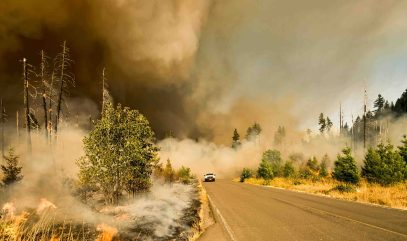Making an Impact
Now that the business case is clear and you are ready to commit to sustainability, the next question might be how you make a meaningful impact. Thinking about large challenges can feel daunting, but it does not need to be difficult. Plenty of work has already been done and there are many models to learn from, borrow from, or adopt, and there is no shortage of resources that can be leveraged – including Measure Meant!
While there are many ways to categorize sustainability, we focus on Workers, Community, Environment, and Customers. And small changes in any of these areas can have a bigger impact than you might think:
- Charitable giving to organizations focused on community issues or the environment may be one of the easiest first steps – specific commitments, like 1% for the Planet, will have an impact while also signaling your intentions to customers
- Adjusting your purchasing and supply chain practices to focus on local products and suppliers can give a boost to your local economy and reduce carbon emissions
- Creating flexible work arrangements can reduce carbon emissions and increase employee engagement
- Adjusting energy use, buying renewable energy, and/or purchasing carbon offset credits has a positive impact on the environment
- Evaluating the waste your business produces and finding ways to reduce waste and ideally work towards a zero waste environment has many long-term benefits
The best way to determine how to make an impact is to spend time fully understanding your current practices and processes, measuring your impact on the environment, and evaluating how your business practices impact your employees and the community. This current state analysis will provide insight into where the biggest opportunities exist and give you a starting point for creating change.
In addition to understanding where changes can be made, it is critical to understand your existing organizational culture and then clearly define the new culture you want to create. Patagonia is a great example of where the culture is engrained in everything they do:
We can hardly continue to make the best outdoor clothing if we become primarily an “indoor” culture. So we seek out “dirtbags” who feel more at home in a base camp or on the river than they do in the office. All the better if they have excellent qualifications for whatever job we hire them for, but we’ll often take a risk on an itinerant rock climber that we wouldn’t on a run-of-the-mill MBA. Finding a dyed-in-the-wool businessperson to take up climbing or river running is a lot more difficult than teaching a person with a ready passion for the outdoors how to do a job.
(Excerpted from Let My People Go Surfing, by Patagonia founder/owner Yvon Chouinard)
Making a real, measurable impact requires creating a new culture; merely creating new policies and procedures isn’t enough. To maximize the impact of your sustainability efforts, sustainability must be a mindset – a specific way of thinking and acting – that all employees have and exhibit in every aspect of their day-to-day work.
As noted earlier, there are many models that can provide a guide to your efforts in sustainability. Our preferred model is the Certified B Corporation or B Corp framework because it provides a more complete, holistic perspective of your business impacts and performance. “The B Impact Assessment evaluates how your company’s operations and business model impact your workers, community, environment, and customers. From your supply chain and input materials to your charitable giving and employee benefits, B Corp Certification proves your business is meeting the highest standards of verified performance.”1
Next week we will introduce this model and further explain the value, and in subsequent weeks we will provide a detailed look at the five components of building a better business.
Read More
The 1980s Called and They Want Their Business Case Back: Why we're rejecting the "business case" for sustainability
They say a rising tide raises all boats. But there isn’t any raising to be done when the tide no longer comes into the bay – all boats remain stranded. We are often asked about the business case for sustainability. For y
Protect Your Community or Organization with a Climate Action Plan
Introduction Our changing climate impacts every aspect of our lives—our economy, our communities, and the environment—in ways both visible and unseen. While scientists and environmental organizations have long recognized
Witnessing the world of sustainable business firsthand
As a young student with a passion for climate justice and sustainability, it always felt like a contradiction to pursue a degree in business. From what I had witnessed, businesses didn’t necessarily operate ethically. Mu
Interning with Purpose: My Journey with Measure Meant
From January to May 2024, I had the distinct pleasure of working with Measure Meant as an Operations Intern. As a graduating senior at Gonzaga University, I had not planned on pursuing another internship in my final seme




